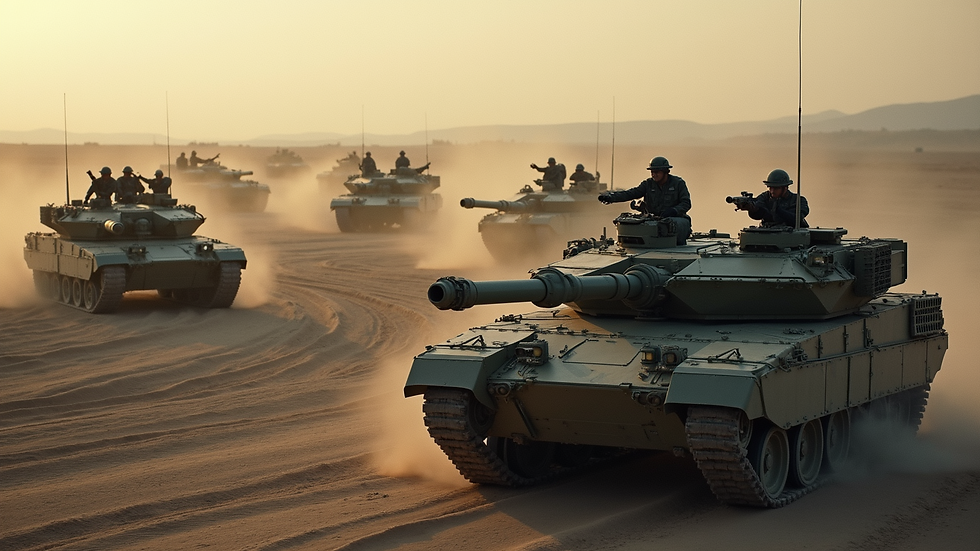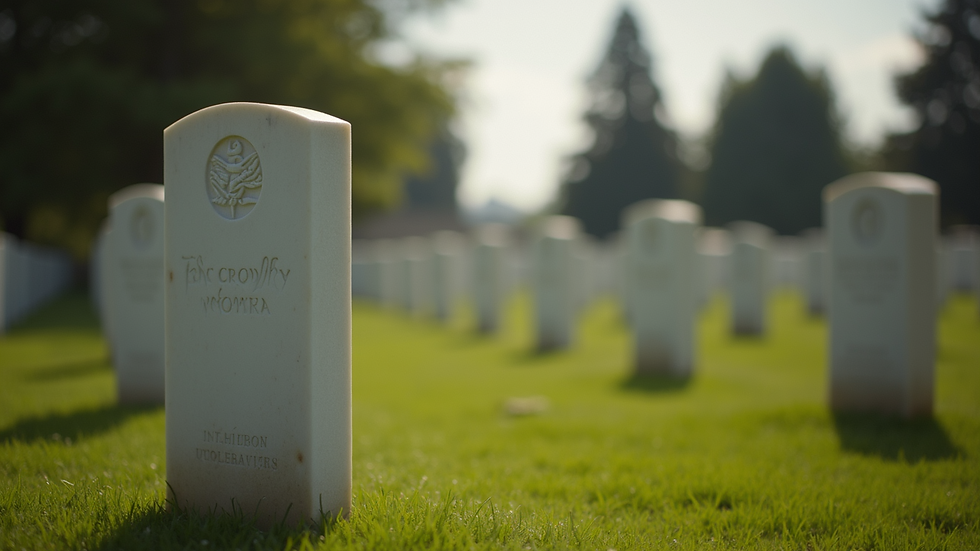Why You Should Care About Script Accuracy in Military Movies More Than You Think
- Reel Tactical
- Jul 23, 2025
- 4 min read
Military movies captivate audiences by showcasing courage, heroism, and the complexities of service. They offer a glimpse into the lives of the brave individuals who defend our freedoms. However, the portrayal of military tactics, character relationships, and actual situations can shape public understanding and respect for the armed forces. Script accuracy in these films is crucial, as it does not merely serve the entertainment industry but deeply affects society's perception of military life. Let’s explore why accuracy matters.
Representation of Reality
Script accuracy in military movies plays a vital role in how society views the military. The stories we tell influence public perception. When films inaccurately portray military operations, it leads to misunderstandings that can skew audiences’ views on the armed forces.
Consider the difference in perception created by two films: one that accurately depicts a soldier's struggle during combat and another that dramatizes war without realistic implications. For instance, action sequences that ignore actual protocols may mislead viewers about what service members experience. According to a study by the Pew Research Center, 68% of Americans believe films shape public opinion about military service. This means inaccuracies can spread misleading impressions that undermine the real sacrifices made by military personnel.
Educational Value
Military movies can serve as valuable educational tools, sparking curiosity about military history, strategy, and operations. They often introduce audiences to critical historical events, prompting further research. A film that authentically portrays a significant battle can inspire viewers to explore the intricacies of that conflict or understand the psychological effects of war.
For example, "Saving Private Ryan" is often praised for its portrayal of World War II. Its depiction of the D-Day landings prompted many to read about Operation Overlord. Conversely, films that showcase exaggerated or unrealistic situations often reinforce stereotypes, diminishing their educational value.
Impact on Veterans
How military narratives are crafted profoundly affects veterans and active duty members. Many veterans seek comfort through films that reflect their experiences accurately. When a film fails to depict the life and struggles of service members authentically, it can be alienating.
For example, a war film that glosses over PTSD can unintentionally overlook the struggles many veterans face. A survey from the Department of Veterans Affairs shows that about 11-20% of veterans who served in Operation Iraqi Freedom experience PTSD. A movie addressing this issue accurately can help foster understanding and empathy, bridging the gap between veterans and civilians.
Effects on Recruitment and Public Perception
Accurate depictions in military films can significantly influence recruitment efforts. Young people often look to films for inspiration when considering their future careers. If movies glorify unrealistic combat scenarios or overlook the real-life challenges service members encounter, they may mislead aspiring recruits about military life.
For instance, a 2020 study by the Military Times indicated that 75% of service members stated they joined based on preconceived notions shaped by media representation. Misrepresentation can lead to unrealistic expectations about service life, which can hurt recruitment and diminish public respect for military members.
A Call for Collaboration
To better achieve accuracy, collaboration between filmmakers and military consultants is essential. These experts can provide valuable insights into military practices, equipment use, and emotional resilience, guiding productions to craft authentic stories that engage audiences while honoring real-life experiences.
For example, films like "Black Hawk Down" and "American Sniper" utilized military advisors to ensure authenticity. This approach not only adds depth to the storytelling but also enriches viewer understanding of military life.
Artistic Expression Vs. Responsibility
While creative storytelling is important, filmmakers must balance artistic liberties with the responsibility to represent military life truthfully. Exaggerating elements can enhance drama, but the potential effects on public perception deserve careful consideration.
Not every military film needs to resemble a documentary. Successful storytelling should incorporate the truth while still being entertaining. By recognizing their influence, filmmakers can create narratives that resonate positively with both audiences and the military community.
Audience Responsibility
As spectators, we also share the responsibility for supporting accuracy in military films. By seeking documentaries, historical literature, and journalistic accounts, we can gain a deeper understanding of military experiences beyond what we see on screen. This knowledge enriches our conversations and fosters appreciation for the realities of military life depicted in films.
Additionally, supporting films that commit to authenticity encourages filmmakers to value genuine storytelling over mere dramatization. Every ticket purchased for an accurately portrayed military story sends a message about the importance of truth in film.
Final Thoughts
Script accuracy in military movies holds more weight than many may realize. From influencing public perception and education to impacting veterans and recruitment efforts, the way military stories are told has far-reaching implications.
By appreciating the creative aspects of filmmaking while urging filmmakers to maintain authenticity, we can deepen our appreciation for the sacrifices made by those in service. Remember that the stories we tell shape our understanding of reality, and every effort to present the truth counts!



Let’s work together to prioritize truth in storytelling, enhancing our understanding and appreciation of military life and the sacrifices made by those who serve.


Comments